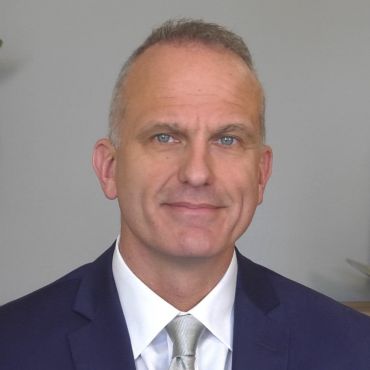
Vice-Chancellor’s Innovation Awards 2020
Enter the Vice-Chancellor’s Awards 2024
The Vice-Chancellor’s Awards 2024 is now open for nominations.
What was previously five separate groups of awards has now become a University-wide celebration for staff across Oxford, with 11 categories in strategically important areas.
Find out more and enter on the Vice-Chancellor’s Awards page.
Nomination deadline: Monday 19 February 2024.
This page references the previous Vice-Chancellor’s Innovation Awards. As of 2024, these are now part of the University-wide Vice-Chancellor’s Awards.
From the Vice-Chancellor 2020
I am delighted that in spite of the current circumstances we are able to celebrate the quality and breadth of research-led innovation across the University, albeit on line rather than in person. It has been simply wonderful to see the calibre and the diversity of projects undertaken here in Oxford, even before our latest innovative responses to the challenges of COVID-19.
Building on the awards two years ago a new category of Policy Engagement has been added to those for Team Work, Building Capacity, Inspiring Leadership, and Early Career Innovators. The range of projects, products, and models which make up the winning and highly commended entries across all the categories are a testament to the excellence of the innovation taking place across the University. I am very grateful to Professor Chas Bountra, Pro-Vice Chancellor for Innovation, for championing this work.
As a University, we are committed to global leadership in knowledge exchange, innovation and entrepreneurship, ensuring our research, scholarship and teaching benefit society on a local, regional, national and global scale. A vibrant innovation culture will in turn sustain research and teaching excellence by helping to attract and support exceptionally talented students and staff whose insight and creativity is the engine of knowledge creation and exploitation.
It is a really tough call as they are each fabulous but I have chosen Professor Robert MacLaren’s Creation and spinout of Nightstar, a retinal gene therapy company as the overall winner.
Best wishes,
Professor Louise Richardson
Team Work
Dr Anna Schuh (Department of Oncology)
Dr Siana Nkya, Dr Clara Chamba and Dr Ahlam Nasser (Muhimbili University for Health and Allied Sciences)
SEREN is a social enterprise based at the Muhimbili University for Health and Allied Sciences (MUHAS) in Dar-es-Salaam, Tanzania that aims to build local capacity for precise, low-cost, low-maintenance, patient-near DNA diagnostics solutions to prevent the needless deaths of thousands of children and young adults with blood diseases in Sub-Saharan Africa.
Highly Commended: The Circularity of Plastics led by Professor Peter Edwards (Department of Chemistry)
Highly Commended: The Quill Project’s Approach to Constitutional History: Archives, Computer Models, and Unconventional Partnerships led by Dr Nicolas Cole (Faculty of History)
Highly Commended: Absolute distance interferometry led by Professor Armin Reichold (Department of Physics)
Building Capacity
Winner: I.Sicily and enabling access to ancient Sicilian inscriptions
Professor Jonathan Prag (Faculty of Classics)
Professor Jonathan Prag has been studying the history of ancient Sicily for twenty years. Over that time he has developed a digital, online, open access corpus (I.Sicily) as a research tool and the foundation for an innovative series of collaborations to make the material accessible to a much wider public.
Highly Commended: 10 years of Medical Sciences Business Development Dr Maxine Allen (Medical Sciences)
Highly Commended: Enabling Research in Low-Income Settings During Disease Outbreaks: Implementing, Learning and Preparing Dr Trudie Lang (Tropical Medicine, Nuffield Department of Medicine)
Highly Commended: The Nanoimager, a desktop super-resolution microscope Professor Achillefs Kapanidis (Department of Physics)
Policy Engagement
Winner: Global policy on typhoid vaccines through research at Oxford
Professor Andrew Pollard (Department of Paediatrics)
Dr Mila Shakya (St Cross College)
Dr Merryn Voysey, Dr Katherine Theiss-Nyland, Ms Susan Tonks, Dr Jennifer Hill, Dr Malick Gibani, Mr Simon Kerridge Dr James Meiring, Ms Elizabeth Jones, Ms Maria Moore, Dr Parvinder Aley, Dr Celina Jin, Ms Rachel Colin-Jones and Ms Sarah Kelly (Department of Paediatrics)
Dr Brian Angus (Nuffield Department of Medicine)
The team led by Professor Andrew Pollard developed a model of human infection in Oxford, tested a new generation typhoid vaccine and showed that it worked. The data from this study supported World Health Organisation (WHO) global policy recommendations on use of the vaccine for all children from 9 months to 15 years of age in high burden areas, and release of $85M funding by the Global Alliance for Vaccines and Immunisation (Gavi) to help low income countries introduce the vaccine.
Highly Commended: Annie MOORE: Increasing Employment of Resettled Refugees using Machine Learning and Optimisation Dr Alexander Teytelboym (Department of Economics)
Highly Commended: Driving policy change to prevent maternal deaths Professor Marian Knight (Nuffield Department of Population Health)
Highly Commended: Putting Out Digital Wildfires Before They Take Hold Marina Jirotka (Department of Computer Science)
Early Career
Winner: Rethinking Conflict, Building Peace
Dr Annette Idler (Department of Politics and International Relations)
Dr Annette Idler leads an interdisciplinary 18-people-team that brings together ethnographic fieldwork with quantitative analysis, complexity science, visualization techniques, visual arts, and historical tracing to provide evidence-based guidance on the directions and pace of change in conflict.
Highly Commended: New modelling tools to help governments and decision makers minimise the risks from infrastructure failures Dr Raghav Pant (School of Geography and the Environment)
Highly Commended: Maternal and perinatal Health Research collaboration, India (MaatHRI) Dr Manisha Nair (Nuffield Department of Population Health)
Inspiring Leader
Winner: Creation and spinout of Nightstar, a retinal gene therapy company
Professor Robert Maclaren (Nuffield Department of Clinical Neurosciences)

Gene therapy may help to slow or even stop the degeneration in genetic eye diseases. Research led by Professor Robert MacLaren led to the spinout of Nightstar which was acquired by Biogen for $877 million in early 2019 – just five years after its founding. The deal ranks as the third most valuable British biotech exit in the last two decades.
Highly Commended: LitHits Professor Kirsten Shepherd-Barr (Faculty of English)
Highly Commended: Rethinking Conflict, Building Peace Dr Annette Idler (Department of Politics and International Relations)